A common misperception of alcohol is that it may calm the nerves and help reduce anxiety. While alcohol is a depressant it could actually turn out to do quite the opposite. Is consuming alcohol bad for anxiety? You bet it is.
What Is Anxiety?
Before we can determine whether alcohol worsens anxiety or causes it, we need to first look into the definition of anxiety.
Anxiety is the feeling of worry, nervousness, or unease about something. It is a natural response to stressful situations.
When anxiety becomes bad enough, it turns into an anxiety disorder, a mental health condition with feelings so strong that they interfere with daily life and make it difficult to function.
Can Alcohol Cause Anxiety?
If you had been wondering—is consuming alcohol bad for anxiety? Then the answer might be closer than you think.
Alcohol is a Central Nervous System Depressant, as such, it slows down brain functioning and neural activity.
Considering anxiety is induced by stress, one may assume that alcohol could help treat it by depressing the central nervous system.
But can alcohol affect anxiety? It certainly can
In the short term, a person who drinks might feel more relaxed, but that feeling might be short-lived as alcohol can actually worsen anxiety. In fact, many alcoholics suffer from episodes of anxiety, depression, and panic attacks.
Can Alcohol Worsen Anxiety?
Anxiety and alcoholism can exacerbate each other and create added challenges for patients trying to find their way back to good health. Alcohol worsens anxiety, it doesn’t make it better.
Addiction and anxiety are closely related and commonly co-occurring disorders.
People suffering from anxiety might unwillingly and unknowingly lead themselves down a path of self-destruction.
Alcohol and anxiety can become a vicious circle. A person suffering from anxiety might seek relief by drinking, alcohol then causes more anxiety—rinse and repeat.
With time alcohol develops tolerance which will require a higher dose to get the same feeling of relaxation.
Lacking a Coping Mechanism
Even though using alcohol may feel like a temporary way to relieve anxiety and forget about the underlying triggers, using it does not remove these stressors from your life.
Therefore, drinking to calm anxiety is like placing a Band-Aid on a wound that requires stitches. If the underlying wound is not treated, then the anxiety will just keep coming back.
To worsen things, treating anxiety and stressors with alcohol may keep the drinker from building the right coping mechanism.
Without building proper coping mechanisms the drinker will not know how to deal with situations in any other way than drinking alcohol.
How Does Alcohol Affect Anxiety
Using alcohol for a long period of time can also impede your ability to deal with stress effectively and respond to it in a healthy way, which can lead to further anxiety.
Alcohol affects the amygdala, which regulates negative emotions, causing lasting physical damage that can turn into enduring anxiety.
The effects of alcohol-induced anxiety may last several hours, and in some cases may last all day.
Drinking alcohol to cope with social interactions is common among those suffering from social anxiety disorder.
Socializing with alcohol can worsen anxiety symptoms by causing a dependency on alcohol. Social anxiety disorder is associated with alcohol dependence in about 20 percent of cases.
Panic Attacks and Alcohol
During a panic attack, the person might feel a sudden and intense feeling of anxiety. A form of deepened desperation that makes the person feel as if they are suffocating or dying.
Physical symptoms of panic attacks include shaking, feeling disoriented, nausea, rapid, irregular heartbeats, dry mouth, breathlessness, sweating, and dizziness.
Panic attacks are not dangerous, but they can be extremely frightening.
Alcohol consumption can lead to panic attacks. If a drinker is experiencing these they must stop drinking immediately and seek professional mental health support
How to Help Someone With Anxiety and Alcoholism
Can alcohol cause anxiety? Yes, contrary to popular belief as we have discovered alcohol is bad for anxiety.
Can alcohol affect anxiety? As we have seen in this article, it certainly can. Alcohol worsens anxiety, it doesn’t make it any better.
You are not sure how to escape the vicious circle of anxiety and alcoholism? Well, not to worry—we have an answer for you!
Our holistic, evidence-based approach is designed to uncover the root cause of alcoholism and anxiety to help your loved ones get sober and learn how to cope with stress in a healthy way.
Contact 902010 Recovery and one of our admission experts will explain how you too can get better today!


